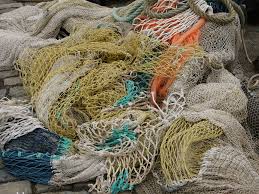A Donegal fish processing plant and a company director have been fined €45,000 in total for tampering with weighing scales used to measure incoming fish catches.
This follows a joint investigation carried out by NSAI (National Standards Authority of Ireland) and the Sea Fisheries Protection Agency (SFPA).
Norfish Ltd, based in Killybegs, and director Tony Byrne, were handed down the sentence today at Donegal Circuit Court.
Mr. Byrne of Roshin Rd in Killybegs was given a six-month suspended prison sentence and ordered to pay €10,000 to a local hospice in Killybegs, and a further €10,000 to the Donegal Branch of the RNLI. Norfish Ltd was given three months to pay a €25,000 fine.
The inspection carried out by NSAI’s Legal Metrology division found that an electrical switch had been fitted to the company’s flow scales used to weigh incoming fish catches. This switch could be used to turn off the scales, allowing the fish to pass over without being weighed. Tampering with measuring instruments used in trade and rendering them inaccurate as a result is an offence under the Legal Metrology Act 1996.
Welcoming today’s sentencing at Donegal Circuit Court, NSAI’s Head of Legal Metrology, Paul Turner, said it is important to encourage high measurement compliance in trading transactions to support a fair and competitive environment for businesses and protect consumers.
“Today’s outcome recognises the seriousness of the offence. We take non-compliance in any sector, whether it’s the fisheries sector or any other sector covered under our legislation, very seriously,” said Turner.
“We will continue to be very vigilant in this sector and if we find any further non-compliance in this area, we will use the full powers of the legislation available to us to deal effectively with it,” he added.
NSAI was first alerted to this case in December 2013 by the Sea Fisheries Protection Agency (SFPA).
The fisheries regulator had made an unannounced inspection, during which they uncovered non-compliance at the plant. During that inspection, the SFPA noticed that fish were being carried along a conveyor belt and over the flow scales, but were not being weighed. The Sea Fisheries Protection Agency withdrew Norfish Ltd’s permit to weigh on site at this time. Legal Metrology conducted an inspection under Metrology Legislation on the 4th of December, 2013.
Commenting on the verdict, Susan Steele, Chair, SFPA said it is an important outcome for the fishing industry.
“Breaches such as these threaten the continuation of in-factory weighing for the entire industry, which is permitted under a special exemption negotiated with the SFPA. This facility can continue only while the accuracy and correct use of those weighing systems is guaranteed,” said Steele.
“Mis-weighing distorts the declaration of catches and undermines the accuracy of data on stocks used by scientists to determine quota and could affect the long term sustainability of our valuable fisheries and the coastal communities that rely on them,” she added.
The inspection carried out by Legal Metrology on the 4th of December resulted in the flow scales being withdrawn from use and Norfish Ltd was issued with a notice to rectify the detected non-compliance.
“Measurement is everywhere throughout the economy and it is a system built on trust,” said NSAI Chief Executive, Geraldine Larkin.
“Nobody wants to have to dispute every quantity they purchase. There has to be a high level of trust and ensuring the accuracy of all measuring instruments used in trade is an important part of that system,” she added.
NSAI’s Legal Metrology division inspected over 14,200 instruments last year. The sectors covered by this public good service include food production, fuel delivery, export enterprises, taxis and local retailers. NSAI’s work in this area is complimented by a network of authorised verifiers, which supports business needs for a professional verification service arising because of new installations, wear and tear, repairs and maintenance requirements over the measuring instruments’ lifetime. The impact of the inspection regime is evidenced by the high compliance rates achieved following the first inspection.








